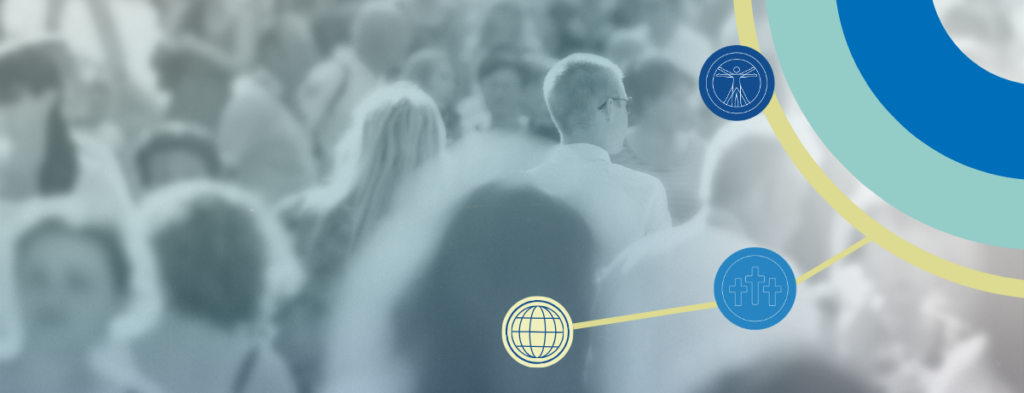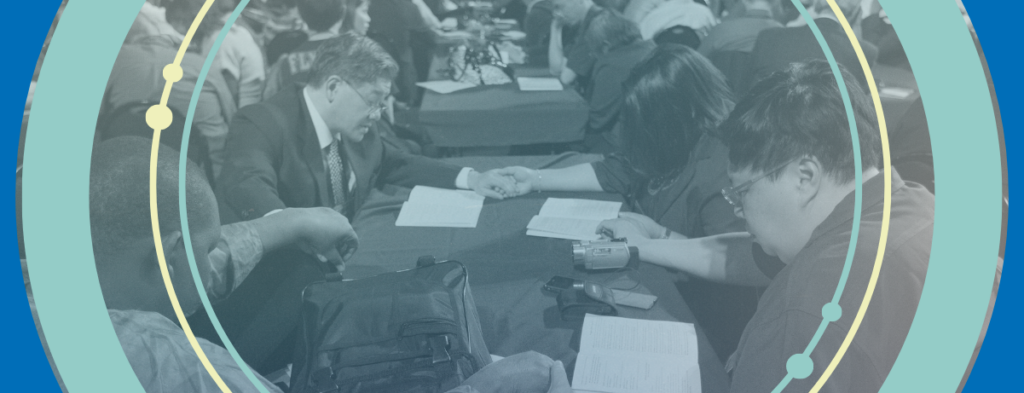Looking ahead to the year 2050, the report considers ten key questions that will impact the Christian church’s global mission.
The Lausanne Movement, renowned worldwide for its historic congresses and leadership in global mission over the past five decades, will soon introduce its State of the Great Commission report, a set of groundbreaking research that brings together the finest global data and over 150 key strategic thinkers to analyse the most crucial gaps and opportunities in fulfilling the Great Commission.
Divided into three main sections, the report provides comprehensive insights into the state of Christian global missions. The first part, titled ‘State of the Great Commission,’ meticulously tracks a diverse array of human activities aligned with the Great Commission, employing a wide range of traditional missiological measures. The second segment, ‘From Today to 2050,’ addresses ten critical questions concerning global shifts, such as the nature of polycentric Christianity, the essence of humanity, and the impact of digital life. Lastly, the ‘Regional Considerations’ portion offers a detailed analysis of twelve world regions.
The report was enriched by the insights of more than 150 global mission experts from various corners of the world, with 40% representing the global south, 35% from the global north, and 25% from the global east. Additionally, the investigation tapped into hundreds of sources of information, as well as publishing original research. First published in English, it will soon be accessible in six additional languages: Spanish, Portuguese, French, Korean, Chinese, and Russian.

Report Highlights
- The Great Commission in a Digital Age. In today’s digital era, evangelism faces new challenges, as online platforms shape identities and communities, making outreach more complex than mere content provision. To succeed, great commission efforts need to intentionally cross digital borders.
- The Question of Humanness. This is an unprecedented age of technological development, and what it means to be human is being questioned amidst rapidly changing dynamics of everyday life. These broader culture movements present new alternative paths for hope, salvation, and redemption, effectively altering the plausibility of the gospel.
- The New Middle Class. Around 2020, the middle-class became the majority of the global population and by 2050, it will increase by 2 billion individuals. This demographic shift will significantly alter global dynamics, requiring necessary adjustments in the efforts of the great commission.
- The Global Aging Population. People aged 60 years and older represent the fastest-growing global population, projected to increase from 1 billion to 2.1 billion by 2050. Global ageing has not been a primary focus for Christian missions in previous decades, a failure that has a significant impact on the extraordinary opportunity to reach and disciple the rapidly growing 60+ cohort.
Matthew Niermann, director of the State of the Great Commission report, emphasised that a successful collaborative action of the Christian global church must be built on a foundation of knowledge.
‘A key aspect of catalysing collaboration for this intentional, strategic Great Commission endeavour lies in truly understanding its current status within our ever-changing world. With collaboration and action in mind, Lausanne has crafted this report, amalgamating top-notch global data and strategic insights to pinpoint the greatest gaps and opportunities for fulfilling the Great Commission.’
Matthew Niermann
Director of the State of the Great Commission Report
The State of the Great Commission report is a fundamental pillar of a multi-year, global, polycentric process called Lausanne 4 (L4), which aims to catalyse the collaboration of the global church toward the discipling of the nations and the shaping of the world by 2050. An integral part of Lausanne 4 is the Fourth Lausanne Congress on World Evangelization, also known as Seoul-Incheon 2024, which will bring together over 10,000 representatives of the global church both online and in person in South Korea from 22–28 September 2024.
The report will be released globally on 23 April 2024. You can access the report by visiting www.lausanne.org/report.

About the Lausanne Movement
Founded in 1974 following the First International Congress on World Evangelization convened by Billy Graham and John Stott, the Lausanne Movement has been serving the global church for nearly 50 years.
Lausanne has a global leadership team of nearly 300 global mission experts, practitioners, and professionals who are committed to accelerating global mission toward a vision of the gospel for every person, disciple-making churches for every people and place, Christlike leaders for every church and sector, and kingdom impact in every sphere of society.
For any media enquiries, send an email to media@lausanne.org.
